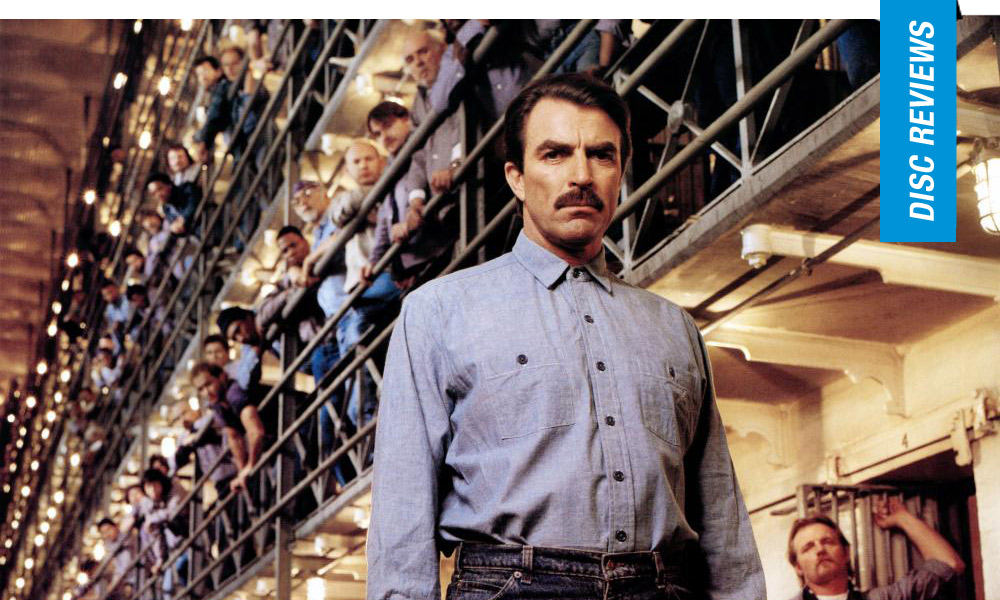Air plane engineer Jimmie Rainwood finds his idyllic life turned upside down when he is framed for a crime he did not commit by two crooked LAPD cops (David Rasche, Richard Young). With only his wife (Laila Robins) believing him, Rainwood decides to fight the false charges, only to find himself treated to a six-year prison sentence. Learning he can’t escape prison morally unscathed, he’s befriended by grizzled lifer Virgil Cane (F. Murray Abraham), a criminal who was put away for life thanks to the same cops. Upon release, Rainwood makes plans to set the record straight.
Comparable to the presence of a Henry Fonda in Hitchcock’s ultimate grapple with innocent men accused of crimes they did not commit in 1956’s The Wrong Man, Yates goes on to code his film with a series of visual cues underlining the prized virtues of heteronormative masculinity. The real men, whose values are presented as unquestionable, sport finely groomed facial hair and sensible haircuts, while its crooked cops (an over-the-top David Rasche and Richard Young) are clean-shaven with long-flowing locks. How the film navigates racial issues is also questionable, including with the use of internal affairs officer played by the overtly noble Badja Djola, who only becomes motivated to intervene on the behalf of Laila Robbins (a Miller-Lite drinkin’ gal) when she lies about his insidious co-workers using a racial epithet to against him.
Like White Boy Rick (2018), the shock of something happening to a man like Jimmie Rainwood is how miserably the system failed a white man, wherein his inherent privilege did not save him from a fate consigned to many a nameless black man (in fact, we are never treated to any examples of the people of color Parnell and Scalise maligned, instead focusing on an unlikely F. Murray Abraham as a lofty prison inmate who has a similar axe to grind with the two cops). Instead, Brothers focuses on the usual racial disparities which make up prison life, including how Selleck must eventually defend himself against Bruce A. Young’s Jingles, an inmate determined to make Jimmie his “kid.” A handsy, bumbling gang rape sequence seems to be what finally pushes Jimmie to the precipice, however, and after a convenient shanking, he automatically becomes a hardened, undaunted criminal who begins to plot his revenge. Silly, archaic and trenchantly white, one wonders what someone like Walter Hill would have done with this material (who released the underrated Johnny Handsome the same year).
Disc Review:
In their continued resuscitation of Peter Yates’ filmography, Kino Lorber revamps An Innocent Man as part of their Studio Classics in 1.85:1 with 5.1 Surround and 2.0 Stereo. Picture and sound quality are serviceable in the release, which also features an audio commentary track from film historian Jim Hemphill.
Laila Robins Interview:
Actress Laila Robins is on hand for this twelve-minute interview recounting her experiences filming An Innocent Man.
David Rasche Interview:
Actor David Rasche recounts his experience filming his ‘hateful’ role in An Innocent Man.
Film Rating: ★★/☆☆☆☆☆
Disc Rating: ★★★/☆☆☆☆☆

